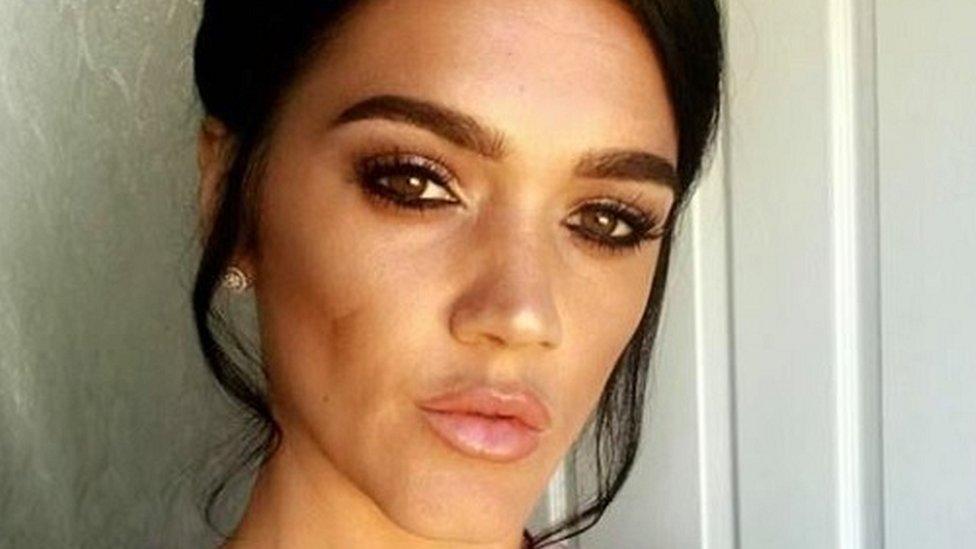Brazilian butt-lift surgery: What are the risks and why is it so popular?
- Published
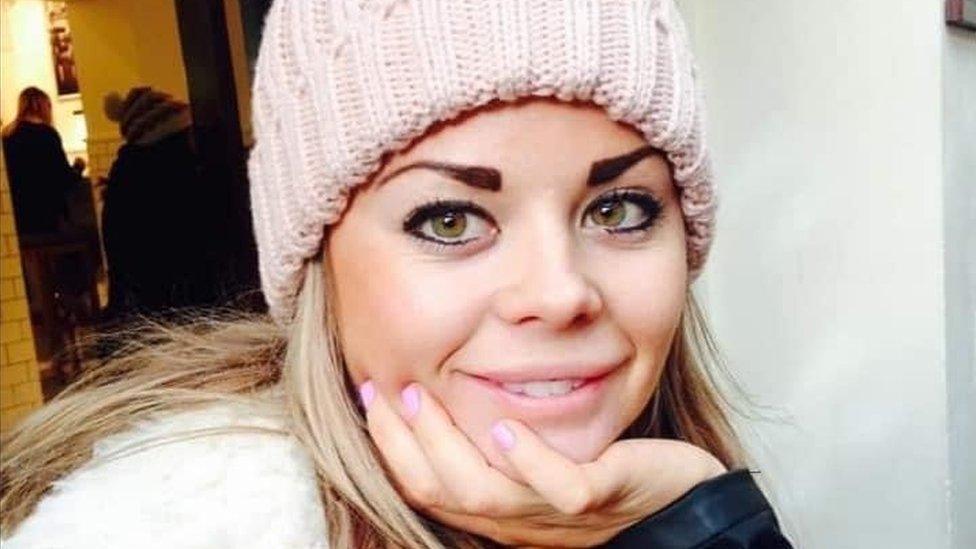
Melissa Kerr, 31, died in 2019 during Brazilian butt-lift surgery in Turkey
Buttock enlargement surgery - also known as a Brazilian butt-lift (BBL) - is the fastest-growing cosmetic surgery procedure but also one of the most dangerous. This week, a coroner concluded 31-year-old Melissa Kerr, who died during an operation in Turkey, was not given enough information to make a safe decision about the procedure. How safe is the surgery and why is it so popular?
What happened to Melissa Kerr?
Ms Kerr, from Gorleston, in Norfolk, died at a private hospital in Istanbul, in November 2019 while undergoing the procedure.
A fatal clot travelled to her lungs after fat taken during a liposuction procedure was injected into her buttocks.
She handed over £3,200 in cash for the surgery, but at the Norwich inquest coroner Jacqueline Lake found Ms Kerr was not given enough information to make a safe decision about the procedure.
The hospital disputes the "contention" that "inadequate information" was given to Ms Kerr and says she "signed several consent forms confirming she knew the risks".
Ms Lake says she will now be writing a "prevention of future deaths" report in the hope fatalities of cosmetic surgery tourists "can be prevented by way of better information".
BBLs carry the highest risk of all cosmetic surgeries - with more than one death occurring per 4,000 procedures, the inquest was told.
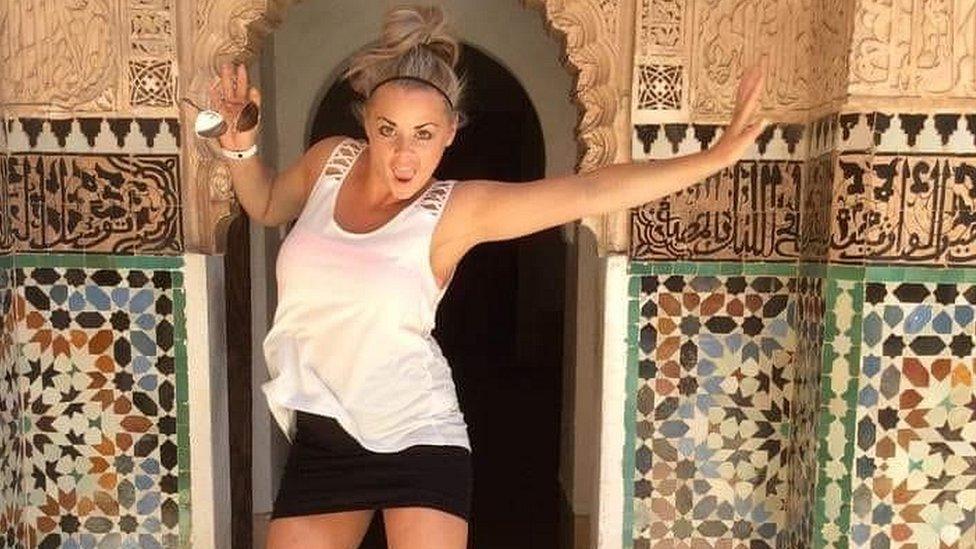
Melissa Kerr died during cosmetic surgery at a Turkish hospital in 2019
What is a Brazilian butt-lift?
BBLs are used to make buttocks bigger, more rounded or lifted.
Surgeons insert silicone-filled implants and/or inject fat transferred from other parts of the body.
Despite the dangers, the British Association of Aesthetic Plastic Surgeons (BAAPS) says the procedure is the fastest-growing type of cosmetic surgery, with its popularity increasing by 20% year-on-year.
Last year, BAAPS issued new guidelines, external to members following a four-year moratorium on BBLs, external due to the high death rate.
It now recommends surgeons only carry out a procedure called superficial gluteal lipofilling (SGL). While it uses fat collected from the body, this is only injected below the skin whereas BBLs insert fat deep into the muscles.
It also recommends surgeons should only carry out SGLs while simultaneously using ultrasound scans so they can see where the cannulas are going.
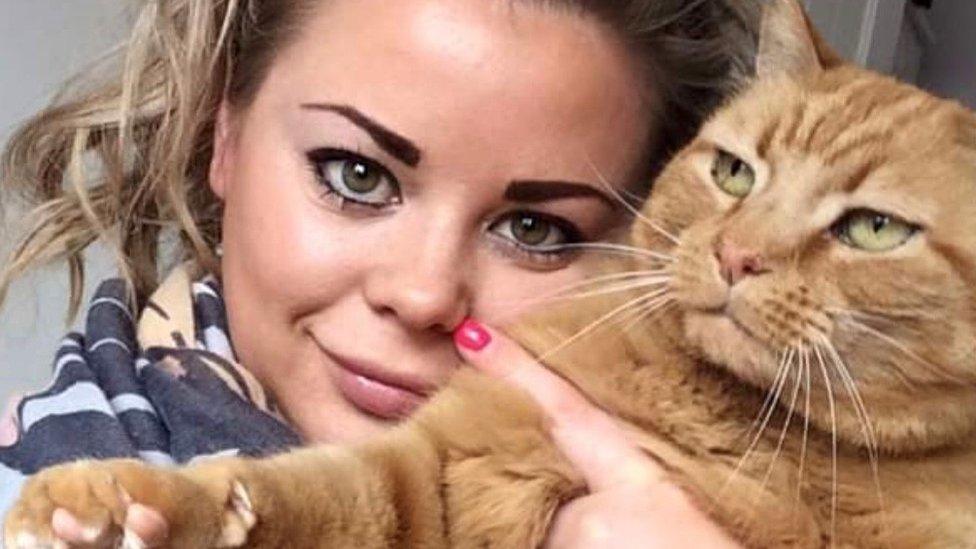
A prevention of future deaths report is to be sent to the health secretary to try and warn others about travelling to Turkey for plastic surgery following Melissa Kerr's death
Why do people want the surgery?
Ms Kerr, a psychological well-being practitioner at mental health charity Mind, was "self-conscious" about her appearance.
Her twin sister, Natasha Kerr, told the BBC that Melissa - who had two masters degrees - "became unhappy about her body due to weight gain and after exhausting all other avenues, she felt there was no other option than to have surgery".
Consultant clinical psychologist Dr Anu Sayal-Bennett, a chartered member of the British Psychological Society, says she feels the allure of celebrity culture and choreographed social media images are behind the trend for BBLs.
She says celebrities like Kim Kardashian, with their strikingly curvaceous bodies, are fuelling a fashion.
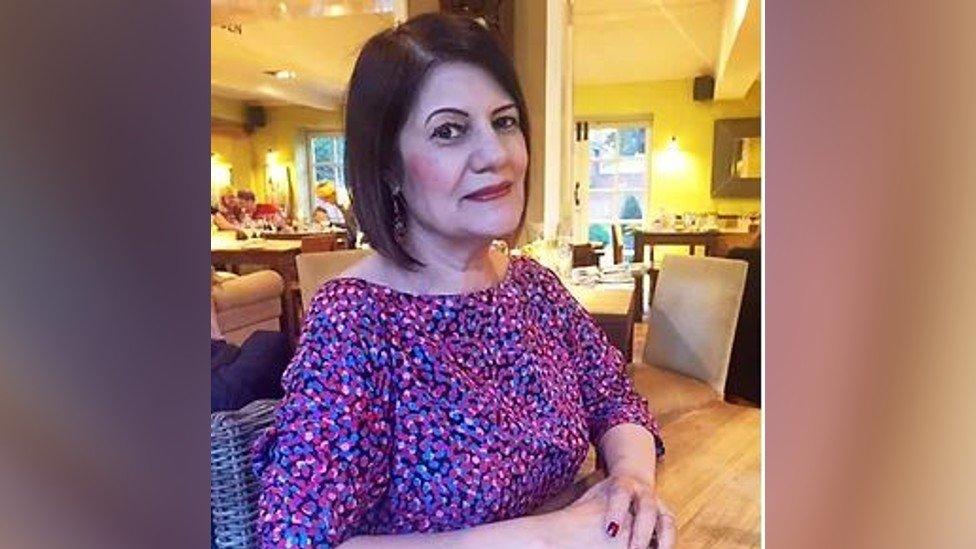
Clinical consultant psychologist Dr Anu Sayal-Bennett says people often want to have the same procedures as celebrities to "buy into" their lifestyles
"Despite there being so much about body positivity, there are pressures for women - and men too - to look a certain way," added Dr Sayal-Bennett.
Plastic surgeons often refer their patients to her as they recognise the importance of psychological screenings.
Those surgeons' ethics are such, she says, that if patients don't meet the criteria then they will not operate - but she warns this is not the case across the world.
Why do people travel abroad for a Brazilian butt-lift?
Adverts for cosmetic surgery clinics in Turkey show glamorous images of women in swimsuits promoting the surgery, alongside special offers for patients combining procedures.
Dr Sayal-Bennett says the advertising is "terribly seductive".
"The glossy adverts: you can get your BBL, sip your cocktails and have your beach holiday and it's cheap at the price.
"But it's an illusion - it's major surgery."
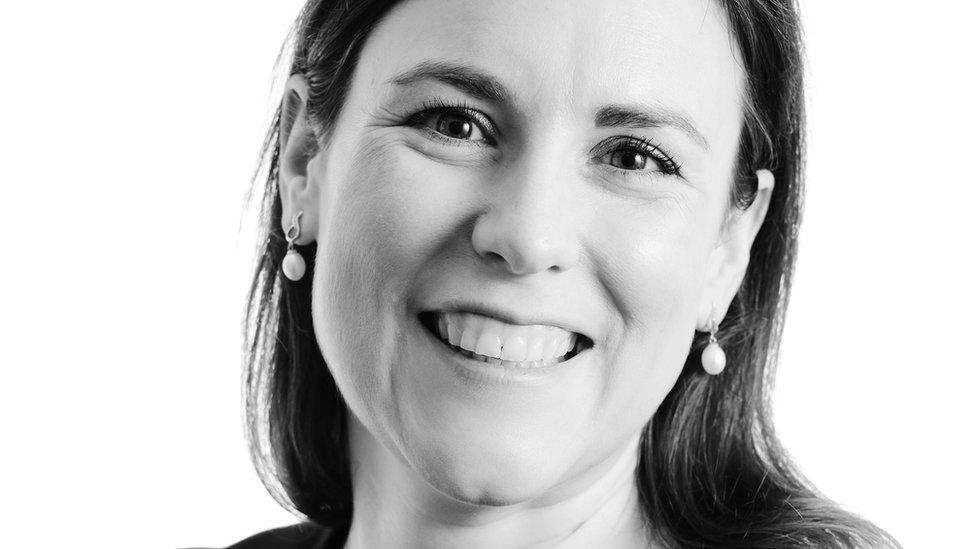
Dr Nora Nugent is vice president of the British Association of Aesthetic Plastic Surgeons
It is mainly the cost that is the deciding factor, says Dr Nora Nugent, vice-president of BAAPS.
"In the UK, the surgery can cost between £6,000 and £12,000, but can be more.
"Adverts I've seen for the procedure in Turkey range from £3,500 to £5,000," Dr Nugent adds.
"Some people went overseas when surgeons who follow BAAPS guidelines weren't carrying out the procedure between 2018 and 2022."
Both experts agree the glossy images from overseas belie the reality.
"The buttocks are swollen, sore and bruised and where the fat has been taken out - which can be at several sites - there is swelling and bruising there as well, explains Dr Nugent.
"You need padded dressings and compression bandages so you're not going to be sitting on a beach."
Both doctors stress the importance of aftercare following the surgery.
Why is the procedure so risky?
UK inquests have been held into the deaths of three women - Melissa Kerr, Abimbola Ajoke Bamgbose, from Dartford, Kent, and Leah Cambridge, from Leeds - who travelled to Turkey for BBLs or linked procedures.
People have died during BBLs due to fat being injected into large veins which then travels to the major organs.
The high fatality risk prompted BAAPS in 2018 to ask its members not to carry out the surgery.
It found complications ranged from severe bacterial infections including MRSA, necrosis - where tissue dies - scarring, wound ruptures and abscesses.
In 2018, BAAPS heard how one London hospital had experienced a six-fold increase since 2013 in cases needing urgent follow-up care from surgeries carried out abroad.
While Ms Kerr's inquest heard mortality rates were one in 4,000, Dr Nugent says more recent research has shown it is likely in the range of one in 13,000 to 15,000.
What should people do before travelling to Turkey?
In an "unprecedented" move BAAPS issued a joint statement on patient safety with the Turkish Society of Plastic Reconstructive and Aesthetic Surgeons (TSPRAS) this summer.
The organisations now urge anyone travelling to Turkey for plastic surgery to follow these new guidelines, external.
They were put out after BAAPS found complications in patients seeking treatment abroad rose by 35% in 2022.
"We cannot stop people from going overseas - our insurance and hospital costs in the UK are so much higher," says Dr Nugent.
"But the least we can do is point them towards what they should be asking of their surgeons, how the procedure will be carried out and details about the routine aftercare."
The new advice for any potential patients going to Turkey includes:
Check that any Turkish surgeons are TSPRAS members and have Turkish board certification
Plastic surgeons should have practiced in their speciality area for at least five years
Surgeons should offer an aftercare plan and patients should know their name and how to contact them
It is compulsory in Turkey to have a comprehensive consent form completed ahead of travel
What does the Department of Health say?
"All cosmetic procedures have risks that can affect people's physical and emotional health and safety standards in other countries may not be as high as in the UK," a spokesperson said.
"We urge anyone considering a cosmetic procedure abroad to do their research into the standards and qualifications that apply in the country they are travelling to.
"They should ensure adequate insurance arrangements are in place and that they have access to appropriate aftercare in the UK in the event of any complications.
"Our sympathies go out to Melissa Kerr's family and we will look into concerns raised in the coroner's report."

Follow East of England news on Facebook, external, Instagram, external and X, external. Got a story? Email eastofenglandnews@bbc.co.uk, external or WhatsApp us on 0800 169 1830
Related topics
- Published13 September 2023

- Published12 September 2023

- Published9 May 2023
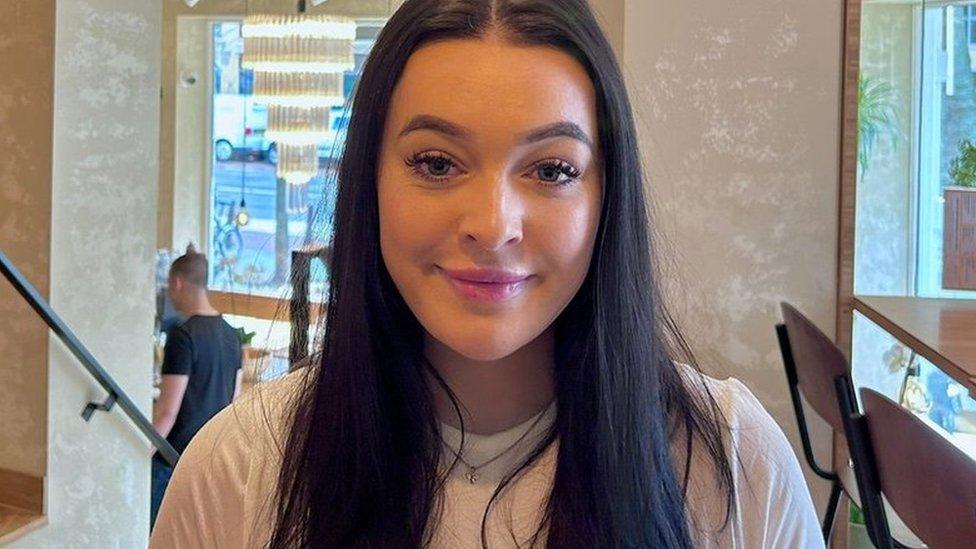
- Published21 March 2023
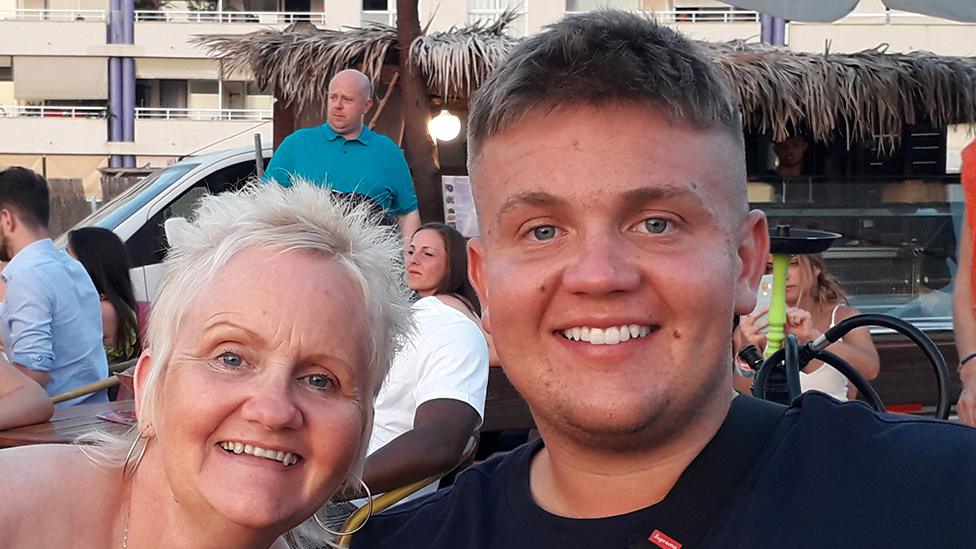
- Published21 January 2021

- Published22 November 2019
